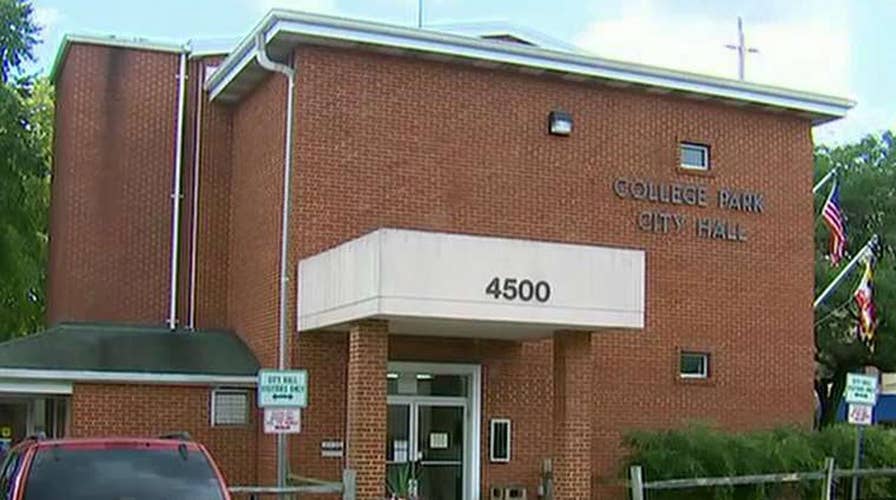Maryland city considering letting non-citizens vote
Supporters say local issues affect all residents regardless of citizenship status
A small Maryland city drew national attention this week for allowing non-citizens including illegal immigrants to cast ballots in local elections – but it's just the latest municipality to do so, in a trend that has some worried the changing definition of 'voter' could erode what it means to be a citizen.
“It’s a slippery slope,” said Ira Mehlman, spokesman for the Federation for American Immigration Reform (FAIR).
College Park, which approved the policy Tuesday, became the 11th municipality in Maryland alone to allow non-citizens to vote in local races.
Supporters cast the change as an important step.
“To me, expanding access to the right to vote in our city is something that expands our community voice, not something that contracts it,” Mayor Patrick Wojahn said, according to the Washington Post.
College Park Councilmember Fazlul Kabir tried to rein in the measure. He said he introduced two amendments—one, to delay the vote to give the council more time to speak with constituents, and another to only allow green-card holders to participate in local elections. Both amendments were struck down.
Kabir said he did not vote at all.
“My problem was about the procedure. I think we went too fast, and didn’t give our residents a chance to speak—that was my frustration,” Kabir told Fox News on Friday. “It is a very heavy subject and we have to be very careful.”
Kabir told Fox News that he sees both “good things” and “risk” in allowing non-citizens to vote.
“The good thing is that it gives more residents the chance to make elected people more responsible, more accountable,” Kabir said. “But the risk is that this could be a slippery slope—other cities can do this, and the change could trickle down beyond College Park to counties and states, and it could even become a national issue. That’s the risk I was feeling.”
Wojhan did not respond to Fox News’ request for comment.
The practice already goes well beyond College Park.
Apart from a couple towns that allowed the practice beforehand, the liberal enclave of Takoma Park kicked off the trend in Maryland back in 1992 when it began to allow non-citizens to vote in mayoral and city council elections. Several other cities and towns followed.
Where it's allowed, non-citizen voting only applies to local races—non-citizens cannot vote in federal elections.
San Francisco also plans to allow non-citizens to vote in local board of education races beginning in 2018. In Massachusetts, both Amherst and Cambridge have moved to introduce non-citizen voting and are awaiting approval, according to the Massachusetts State House News Service.
For the past few years, New York City has weighed whether to allow non-citizens to participate in city elections.
But opponents like Mehlman, whose group advocates for lower immigration levels, call the shift an “assault on the whole concept of citizenship and what it means.”
“If anybody who just wanders in has the same right—and an equal right—on how this country is run, then, essentially, the whole concept of the nation becomes meaningless,” he said.
And Jessica Vaughan, director of policy studies for the conservative Center for Immigration Studies, called it “one more form of erosion of the meaning of American citizenship.”
“Politicians should not dilute the vote of citizens by allowing those who have no claim to this privilege, and whose interests might conflict with the interests of citizens, to vote,” Vaughan told Fox News in an email. “Besides, obtaining the right to vote is something that encourages legal immigrants to become citizens, which is beneficial to our country.”
"It's political pandering of the worst kind," she said.





